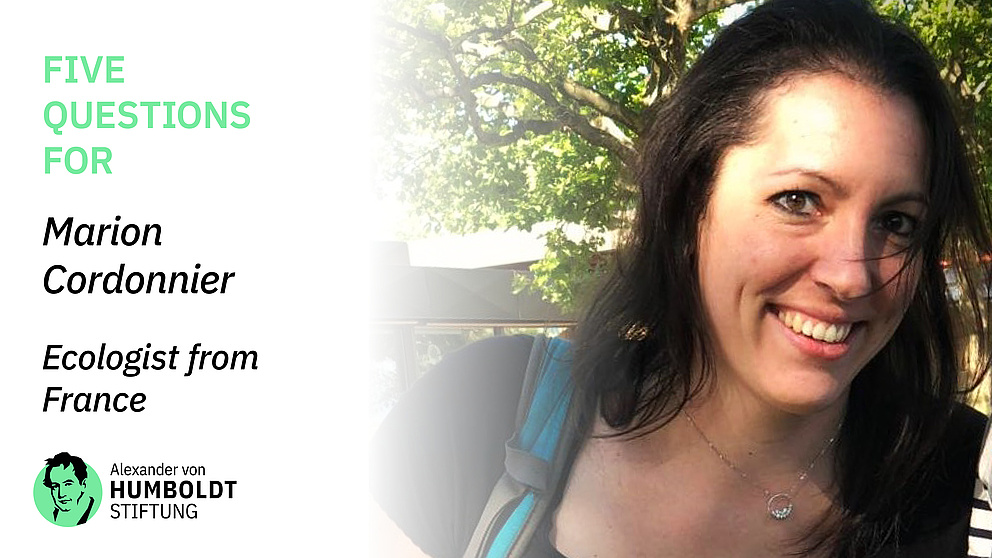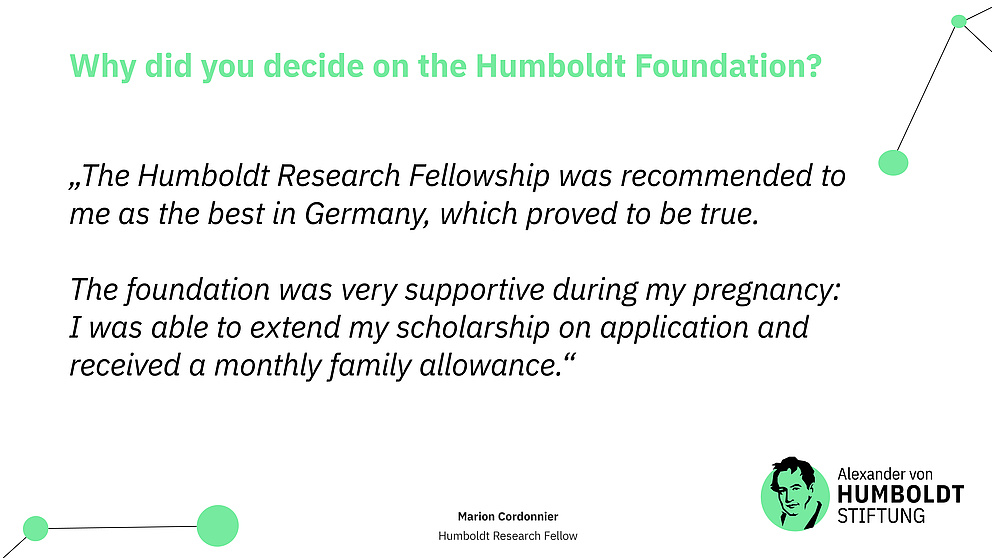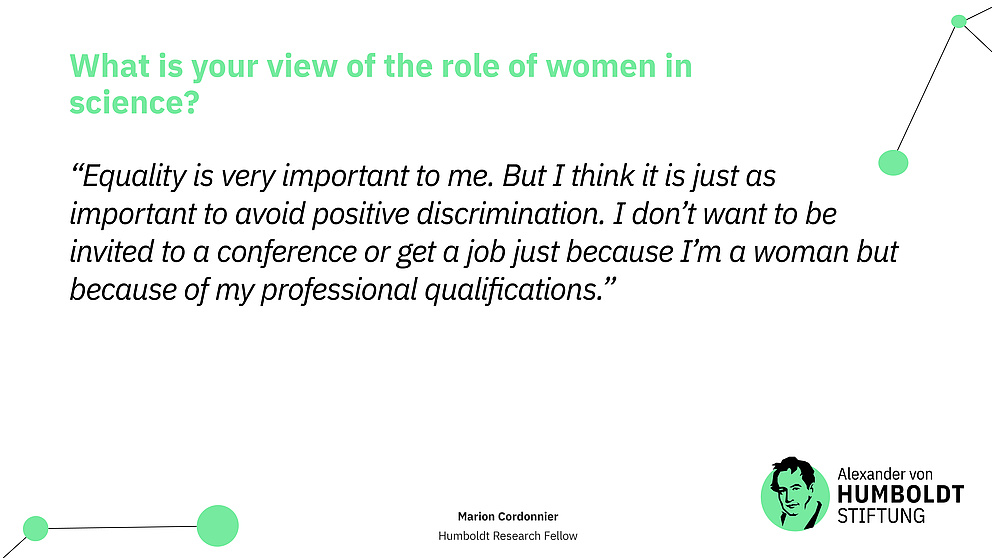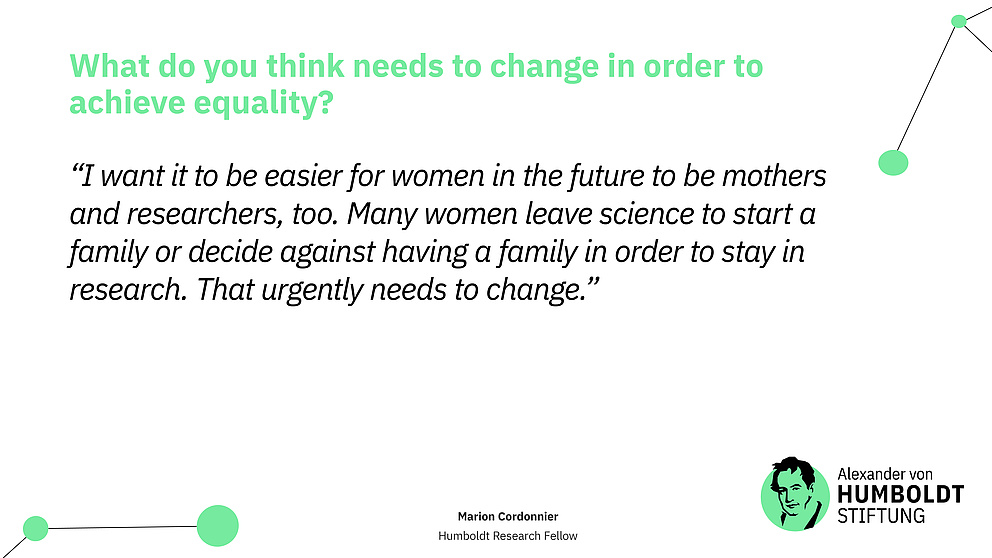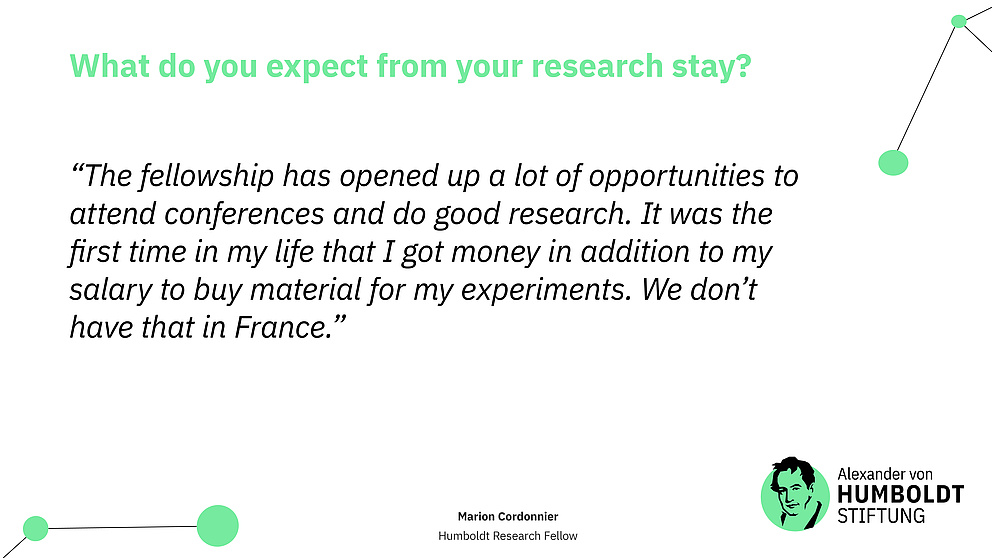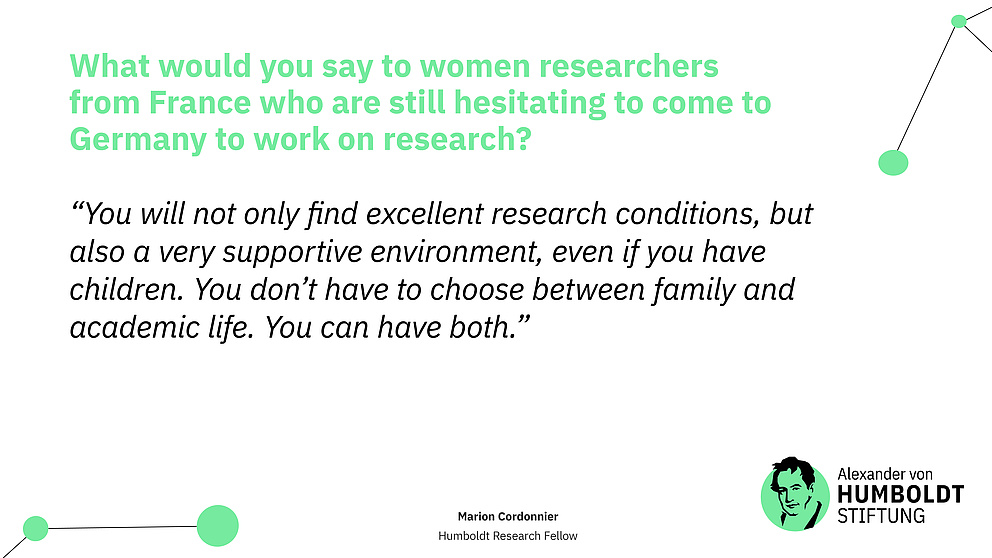“I want my research to reveal the direct influence of humans on ant species diversity,” says Marion who addressed the impacts of climate change and urbanisation in her doctoral thesis. “Back then, I spent a lot of time on the middle of roundabouts in Lyon and surrounding areas. I collected lawn ants’ nests in order to study genetic exchange within this species to the accompaniment of engine noise.”

Contact
Press, Communications and Marketing
Tel.: +49 228 833-144
Fax: +49 228 833-441
presse[at]avh.de
Early enthusiasm for nature
Marion knew she wanted to become an ecologist when she was still a child. “I come from a family of enthusiastic naturalists. My father was an ornithologist, my uncle an ecology professor. When I was small, we spent a lot of time at lakes spotting waterfowl.” Later, she did educational work, explaining to children and adults how to protect the environment – a mission that drives her to this day.
When her husband, who is also an ecologist, got a job at a national park in Bavaria, Marion applied for a Humboldt Fellowship and contacted her current host. “The Humboldt Research Fellowship was recommended to me as the best in Germany, so I applied. It is both scientifically and personally rewarding to work together with Jürgen Heinze, one of the leading behavioural and evolutionary biologists in Europe.”
Support for research and family
Shortly after embarking on her research stay in 2021, Marion discovered she was pregnant. She knew immediately, “From the bottom of my heart I wanted to be a mother and a researcher.” And she was supported by Heinze and her colleagues. “Because of the chemicals we use, I couldn’t do a lot of the analyses myself. But my colleagues enabled me to continue my research during my pregnancy.” This was helped enormously by the support she received from the Humboldt Foundation. “I was able to take parental leave, my fellowship was extended by three months, I received a monthly family allowance and when I then applied for a further extension of a year, it was granted. That was a great relief,” says Marion. Particularly during the first year when she didn’t have a place in daycare, and when the medication for her son, who has epilepsy and asthma, was still being adjusted.
Equal opportunities for everyone
Now, Marion commutes three times a week from where she lives to the laboratory 120 km away; on two days, she works from home. “It makes me very happy that motherhood and research are now both parts of my life. I was scared it would be impossible.” In her working environment she encounters women who leave academia to start a family or decide against having children in order to continue in research. “It should be easier to be a mother and an academic.” She believes permanent contracts would be a good start. “The conditions for research in Germany are excellent. All the postdocs I know would like to stay here for ever if it weren’t almost impossible to get a steady job. I don’t know a single woman who has a permanent contract.” That is the reason why Marion, too, will return to France.
If it were up to her, all application procedures would be anonymised. Then more women would have permanent contracts and equal opportunities, she believes. “I’m certain, academia would then be full of people of all genders and nationalities as well as people with disabilities. Every opportunity should be open to every person.”
Author: Esther Sambale

